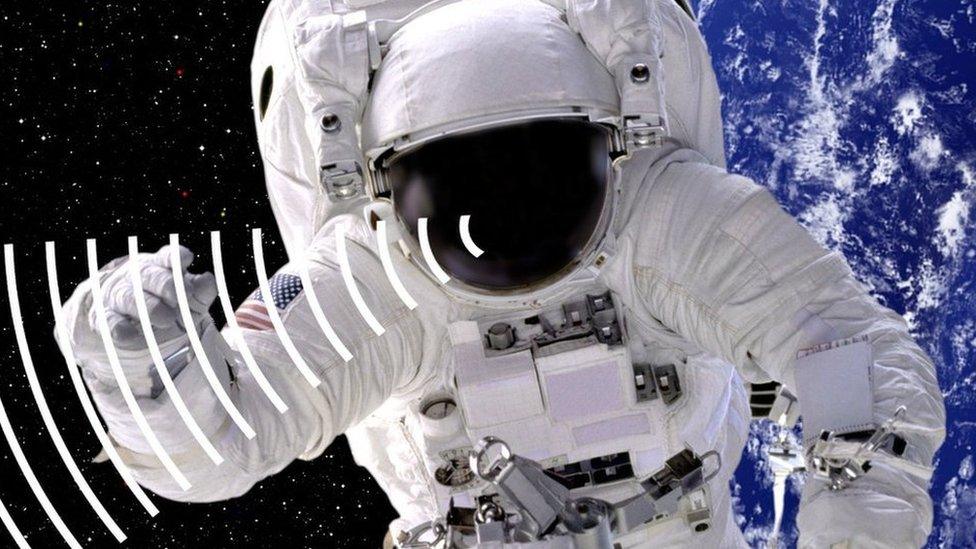The amputee astronaut helping to make space more accessible
- Published
- comments
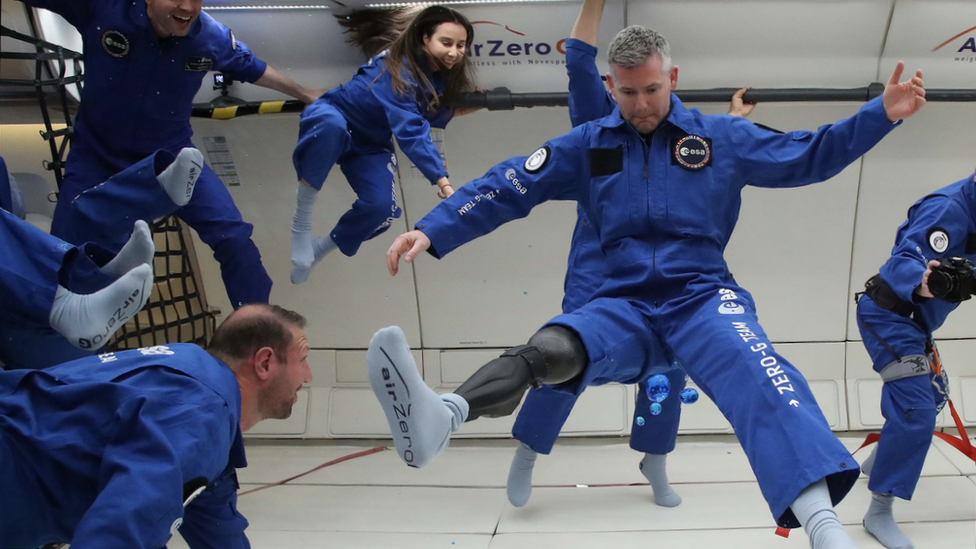
John is investigating how his disability could affect life and work in space
John McFall is a man on a mission!
He wants to prove that people with disabilities can do anything, by living his dream of becoming an astronaut.
After losing his leg in a motorbike accident when he was 19, John had to learn how to walk again. Once he had mastered that, he took up running using a new prosthetic leg.
Running became John's life, and he even made it all the way to the Paralympic Games in 2008, winning bronze in the 100m.
A few years later, John applied for a chance to work for the European Space Agency who were looking for people to take part in a unique study.
They wanted to see how to make spaceflight more accessible for people with disabilities.
"I'm very much following my heart and I'm following my curiosity," John said, "and I'm following my passion for science and life."
BBC News were able to join John on a special plane that recreates the feeling of zero-gravity, much like astronauts experience in space.
The specially designed plane flies steeply into the sky, and as it gets ready to head back down towards Earth, the passengers become weightless for around 20 seconds.
Inside, the walls are covered in a padded material and everyone flies around with little control over where they might end up. It is often compared to a rollercoaster.
But the flight isn't just for fun - John is observing how his prosthetic leg behaves in a zero-gravity environment.
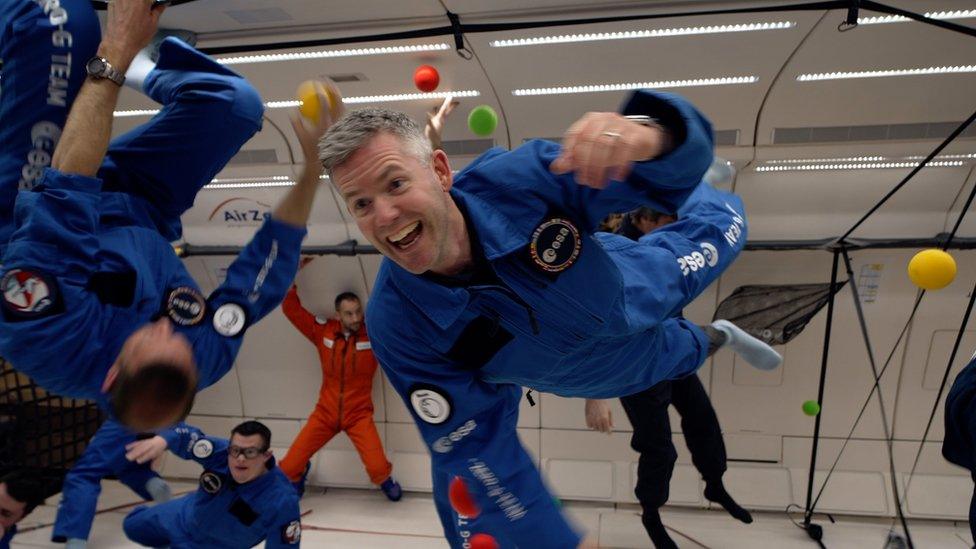
British Paralympian John was selected for astronaut training in November 2022
He says it is quite unpredictable and he has no control over how it moves, as the technology inside it relies on gravity to work.
John suggests the technology will need major adjustments, and disabled astronauts may require specialised training to go to space.
He also says there is further research that needs to happen, including looking at adaptive spacesuits and adjustments to the spacecraft itself.
John isn't guaranteed a mission to space but he says the zero-gravity flight has given him "even more hunger and excitement".
- Published30 May 2020
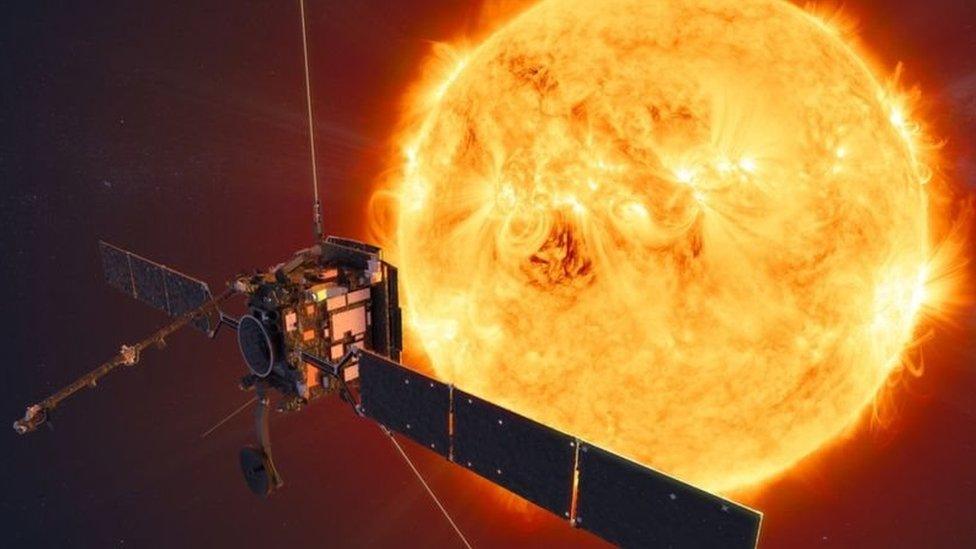
- Published7 March 2018
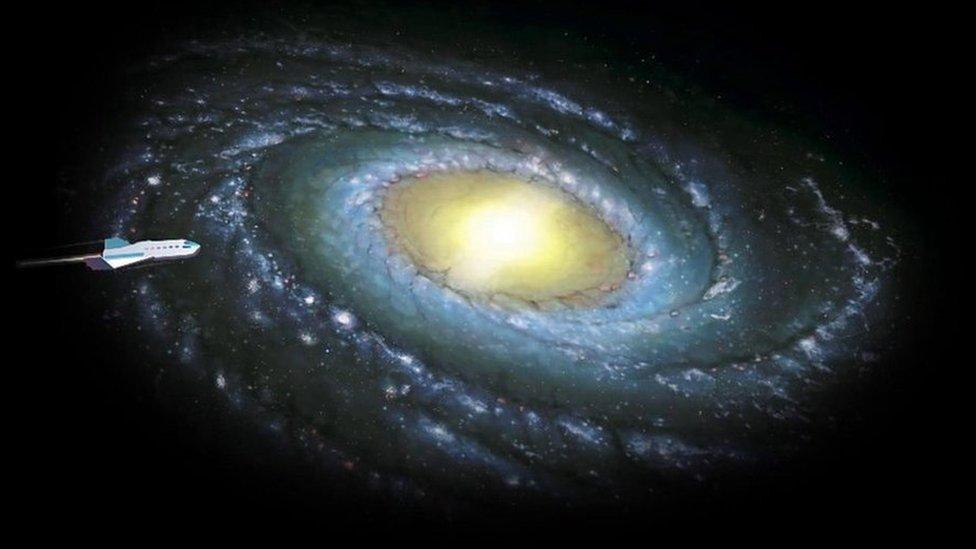
- Published4 January 2018
